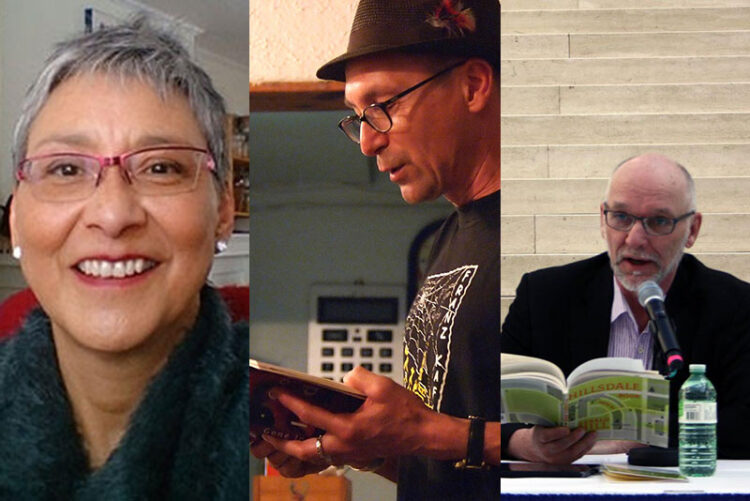Poetry Becomes Wisdom
It was Wednesday April 20, and I had just finished walking Armand Garnet Ruffo back to his hotel from the Art Gallery of Alberta. He was speaking there at an event called Poetry Becomes Art. Afterwards, he invited me to join him and a few friends for dinner, and I hesitated because I am a broke student. I hesitated even more when he offered to pay the tab. How could I repay him with the leftover lint and partial pack of gum in my pocket?
He and his friends and I ate burgers and talked for hours. The conversation ranged from the history of Edmonton, to an event they all spoke at 20 years ago. They told me about things I didn’t know I wanted to learn: stories that spanned years, decades, and even centuries. Marilyn Dumont taught me humility, and that I should know the ground that I walk upon; that I should give thanks and offer prayer for the lives of the elders that gave us this space. Armand taught me about inclusion, and I am forever grateful for this, because learning begins with ensuring everyone has space at the table. Gerald Hill showed me that wisdom is not tied to age. At the end of the night I walked home humbled and introspective.

Wisdom and knowledge are transferred from elder to younger generations. Wisdom can be anything from sharing a story about a misadventure, to a wistful memory shared between friends. Some pass wisdom as gifts to younger generations so they know where they are standing, and what they are working with. Sometimes this wisdom takes the form of poetry. It’s beautiful to learn from elder poets, to share wisdom that has spent many years growing, and to be around people who have access to words that you’ve never thought of. I will be forever grateful for these three poets, for bringing me into the circle and allowing me to learn from them. This is why poetry exists, I think. It connects people to each other, and forms bridges so that we can grow together.
This was a guest blog post by volunteer extraordinaire Shayne Golosky-Johnston.